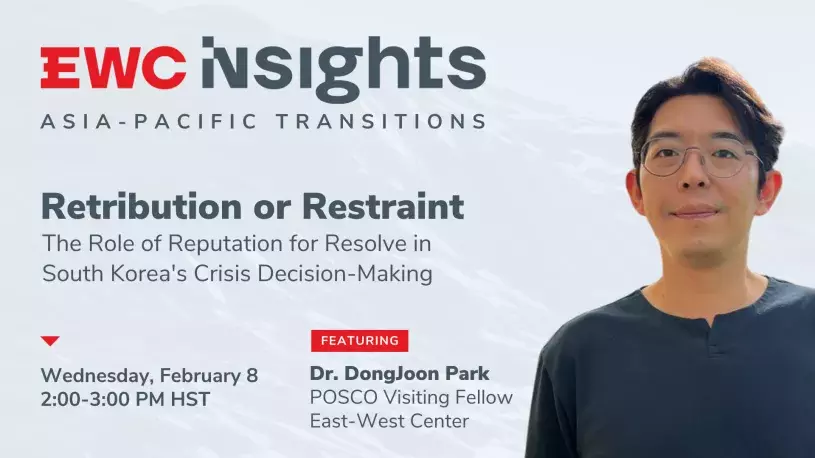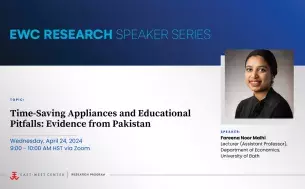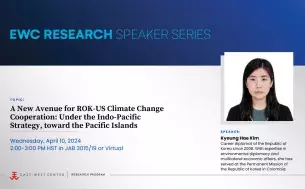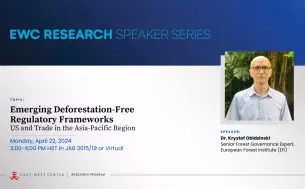Error message

OFFICE/DEPARTMENT
Conventional wisdom posits that states seek a strong reputation for resolve in order to deter adversaries. This, in turn, incentivizes actors to respond firmly against security threats. But not every crisis escalates; states may also choose to back down despite the potential risk of being perceived as weak. This talk will discuss why actors might choose to cultivate a ‘moderate’ reputation for resolve under certain conditions and consequently show restraint during crises. The talk will compare the decisions made by Presidents Park Chung-hee and Chun Doo-hwan after assassination attempts by North Korea in 1968 and 1983, respectively, to investigate these claims.
Dr. DongJoon Park is a POSCO Visiting Fellow at the East-West Center and a senior researcher at the Peace and Democracy Institute (PDI) at Korea University. He received his Ph.D. in Political Science from the department of Government at Georgetown University in August 2020. His research focuses on the role of reputations in international relations, alliance politics, and, more broadly, the impact of perceptions on crisis decision-making. He was a visiting scholar at the Institute of Security and Conflict Studies (ISCS) at George Washington University (2020-2021) and a James A. Kelly Korea Research Fellow in residence at Pacific Forum (2011-2012).
Conventional wisdom posits that states seek a strong reputation for resolve in order to deter adversaries. This, in turn, incentivizes actors to respond firmly against security threats. But not every crisis escalates; states may also choose to back down despite the potential risk of being perceived as weak. This talk will discuss why actors might choose to cultivate a ‘moderate’ reputation for resolve under certain conditions and consequently show restraint during crises. The talk will compare the decisions made by Presidents Park Chung-hee and Chun Doo-hwan after assassination attempts by North Korea in 1968 and 1983, respectively, to investigate these claims.
Dr. DongJoon Park is a POSCO Visiting Fellow at the East-West Center and a senior researcher at the Peace and Democracy Institute (PDI) at Korea University. He received his Ph.D. in Political Science from the department of Government at Georgetown University in August 2020. His research focuses on the role of reputations in international relations, alliance politics, and, more broadly, the impact of perceptions on crisis decision-making. He was a visiting scholar at the Institute of Security and Conflict Studies (ISCS) at George Washington University (2020-2021) and a James A. Kelly Korea Research Fellow in residence at Pacific Forum (2011-2012).









